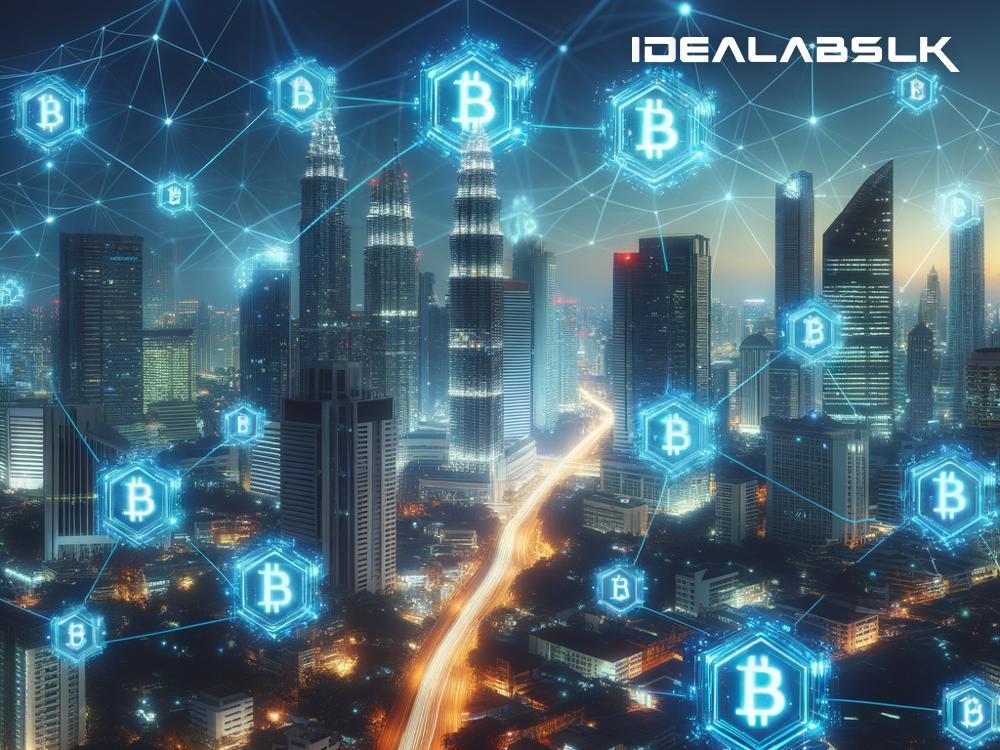How Blockchain is Changing the Future of Real Estate Investment: A Simple Guide
The world of real estate investment is undergoing a revolutionary change, thanks to blockchain technology. If you've heard of blockchain through the buzz around cryptocurrencies like Bitcoin, you're on the right track. However, blockchain's impact stretches far beyond digital currencies, especially into real estate. But what exactly is blockchain, and how is it poised to transform the future of real estate investment? Let's break it down into simple terms.
Understanding Blockchain in Layman's Terms
At its core, blockchain is a digital ledger or record of transactions. Imagine it as a digital notebook that keeps a record of every transaction that occurs, from buying a candy bar to selling a house. What makes it special is that this notebook is duplicated across a network of computers and is designed to update itself every few minutes with every new transaction. This means every transaction is recorded in a way that is transparent, secure, and nearly impossible to hack or alter.
The Impact of Blockchain on Real Estate Investment
Now that we've got a basic understanding of what blockchain is, let's explore how it's changing the real estate investment landscape:
-
Streamlining Transactions: Real estate transactions are known for being slow and paperwork-heavy, often involving multiple middlemen like lawyers, brokers, and banks. Blockchain can simplify this process by creating a secure and efficient digital platform for transactions. This means buying or selling property could potentially be done with a few clicks, reducing time and costs.
-
Improving Transparency: The transparency of the blockchain ledger means that every aspect of a real estate transaction, including previous ownership, property value, and even disputes, can be accessible to all parties. This level of transparency builds trust among buyers, sellers, and investors, and reduces the chances of fraud.
-
Tokenization of Property: Imagine owning a part of a property the way you own shares in a company. Blockchain technology allows for something called 'tokenization', which means turning the property value into digital tokens that can be divided and sold. This opens up investment opportunities to many more people, as it lowers the entry barrier to real estate investment. You could own a piece of a building in New York or a commercial space in Tokyo without having to buy the entire property.
-
Smarter Contracts: Enter 'smart contracts', self-executing contracts with the terms directly written into code and stored on the blockchain. These contracts automatically enforce and execute the terms of agreement between buyer and seller. For instance, a smart contract could automatically transfer ownership once a payment is made, without needing a middleman. This cuts down on time and potential for disputes.
-
Global Investment Opportunities: Blockchain makes it easier for investors from all over the world to explore and invest in properties internationally. Since the transactions are done digitally and securely, it removes many of the complications and risks associated with international property investment.
The Challenges and the Future
Though the potential is immense, blockchain in real estate is still in its infancy, facing regulatory, technical, and adoption challenges. For widespread implementation, there needs to be a robust framework to address these issues, ensuring security and legal compliance on a global scale.
As we look to the future, the continuous evolution of blockchain technology promises more innovative solutions to streamline real estate transactions, making them more accessible, efficient, and transparent. The rise of decentralized finance (DeFi) platforms and digital asset management systems will further enhance investment opportunities and transaction processes.
In Conclusion
Blockchain is set to revolutionize how we invest in real estate, bringing about a future where transactions are quicker, cheaper, and more accessible to a global audience. It's not just about simplifying transactions; it's about democratizing real estate investment, offering new opportunities to a larger pool of investors, and opening up a global marketplace. While there are still hurdles to overcome, the potential of blockchain in transforming real estate investment is undeniable. As technology continues to evolve, so too will the ways we buy, sell, and invest in property, making it an exciting time for the real estate industry.

